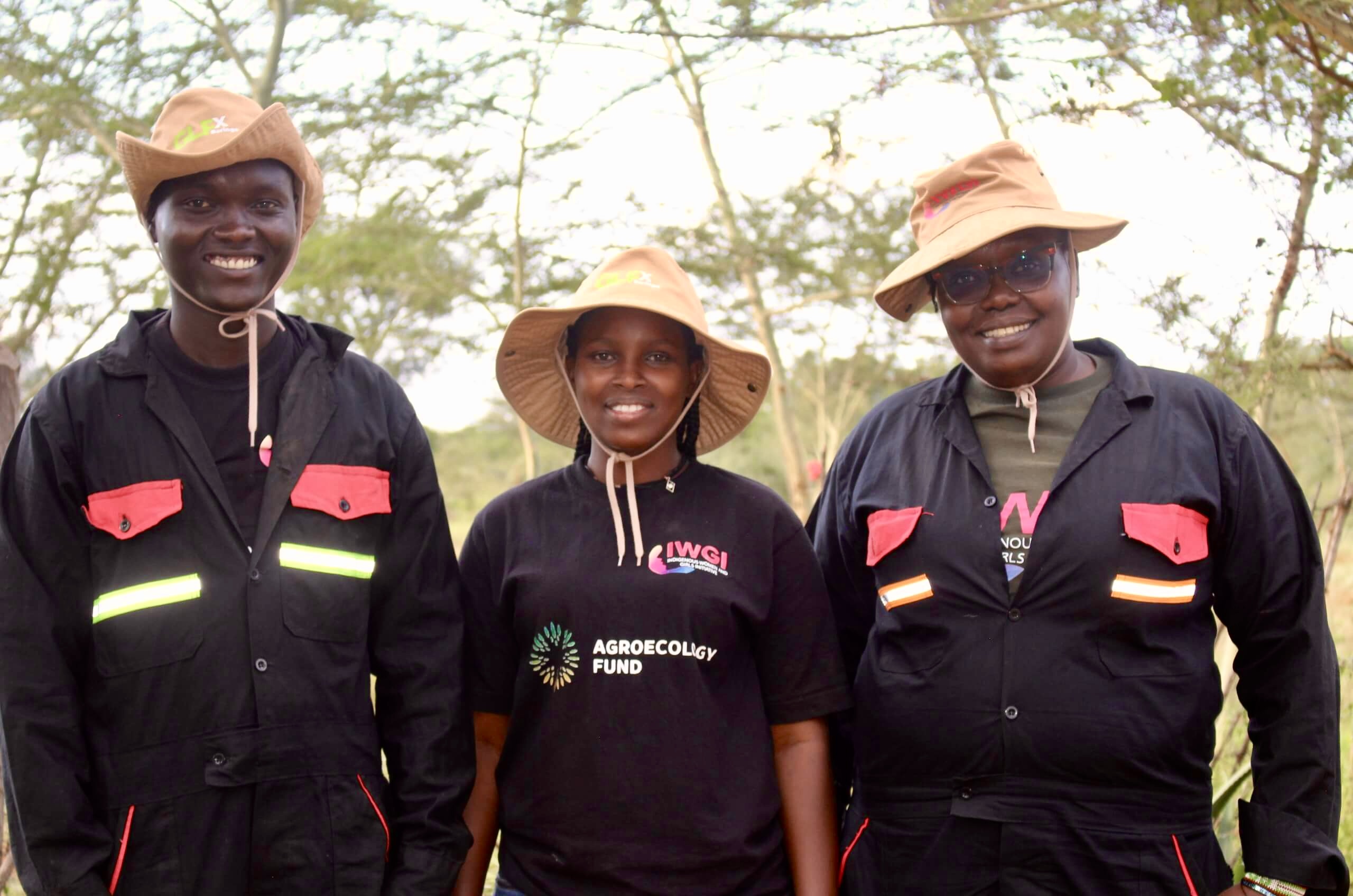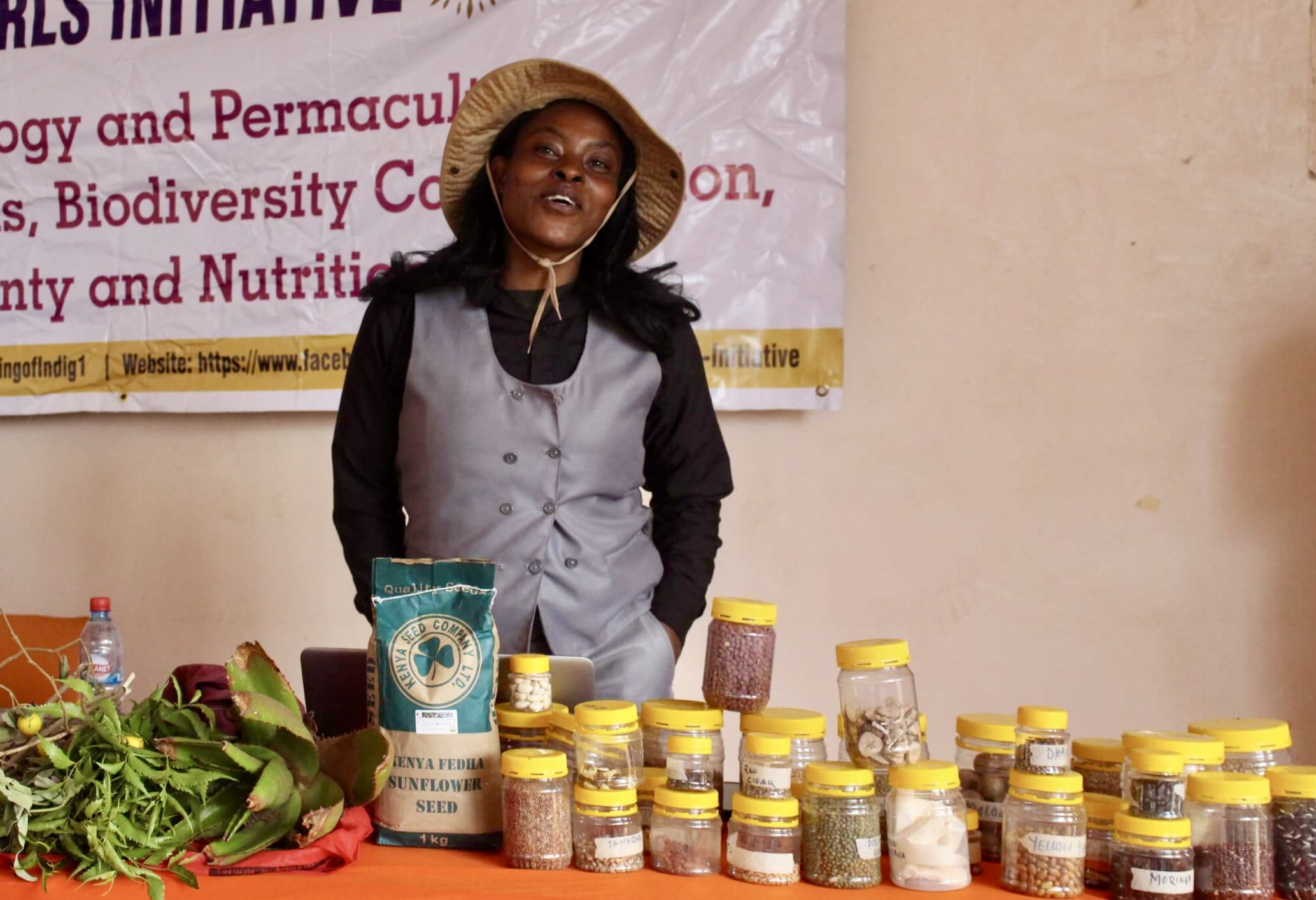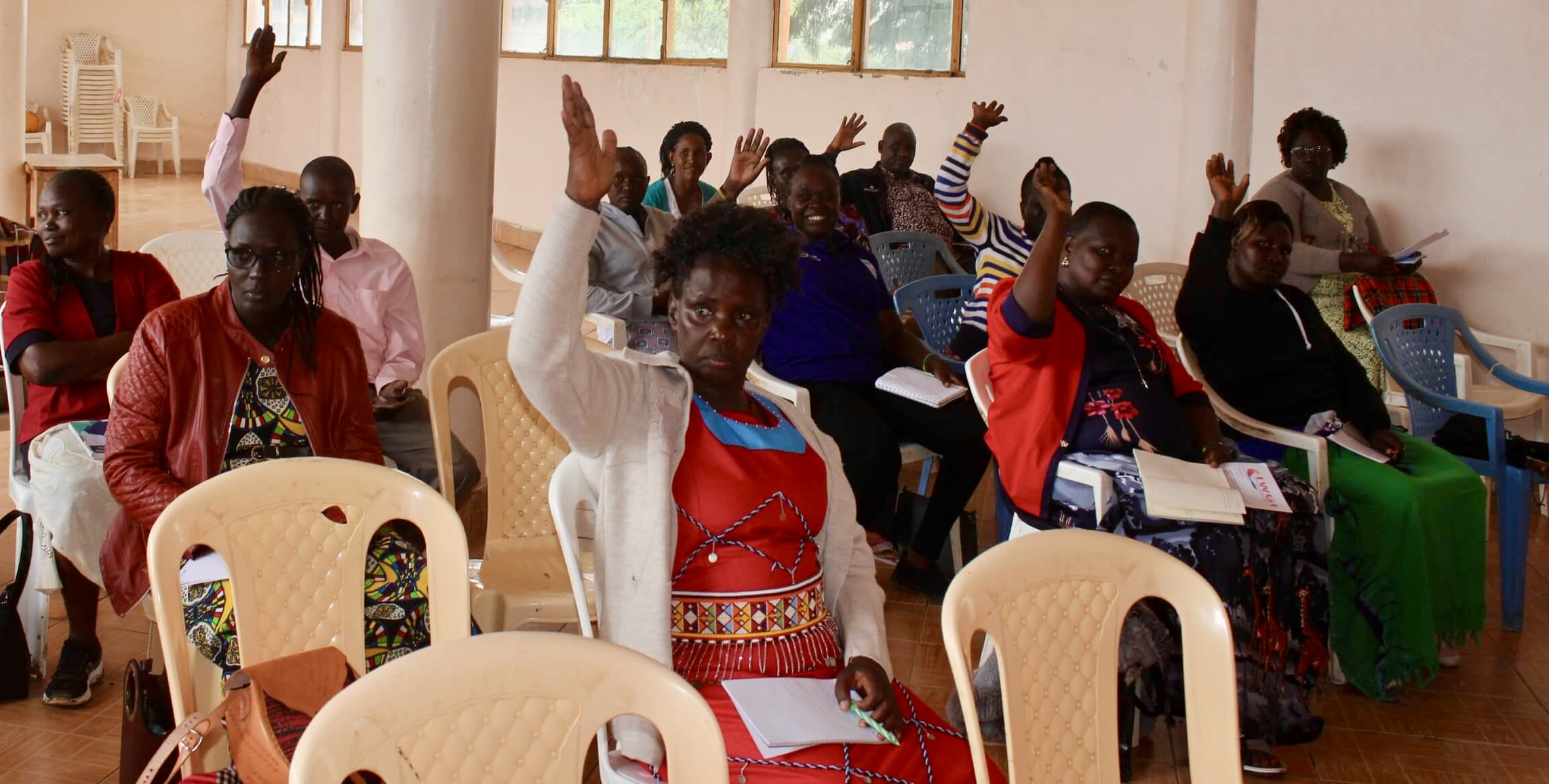Empowering women to lead climate resilience in Kenya’s arid lands
Organization: Indigenous Women and Girls Initiative (IWGI)
Over 80% of Kenya’s land is classified as arid and semi-arid (ASAL), where communities face the harsh realities of climate change—drought, flooding, resource conflicts, and the loss of traditional livelihoods. Pastoralists, who depend on predictable climate patterns for their livestock, are increasingly vulnerable as droughts and erratic rainfall compromise water and food availability.
Amidst these challenges, the Indigenous Women and Girls Initiative (IWGI), a women-led community-based organization in Marigat, Baringo County, is spearheading transformative, locally led adaptation efforts. Since 2019, IWGI has been working with indigenous groups—including pastoralists, fisherfolk, hunters, and gatherers—to build resilience through agroecology and permaculture practices. Their approach emphasizes community ownership, gender equity, and traditional knowledge integration.
Women Leading Agroecological Transformation
IWGI's focus on women-led interventions addresses deep-rooted gender inequalities in agriculture. While men dominate conventional large-scale farming, women in ASAL regions often manage smaller plots, making them more adaptable to agroecological practices. IWGI empowers women by creating spaces for knowledge exchange, where farmers can share experiences, discuss best practices, and exchange seeds. These interactions foster a sense of community and collective problem-solving.
Through stakeholder dialogues, trainings, and farm demonstrations, IWGI has fostered collaborative action and investment in agroecology. They partner with organizations such as the Baringo Agroecology Movement Group, Seeds Saver Network, Scope Kenya, and Pelum Kenya to amplify agroecological advocacy and knowledge sharing. Internationally, IWGI connects with networks like the Alliance for Food Sovereignty in Africa and serves as the Global Landscapes Forum Chapter of Baringo County.

Integrating Gender, Health, and Agriculture
IWGI takes a holistic approach, integrating gender empowerment, agricultural innovation, and climate adaptation. They conduct educational sessions in schools to link environmental health with academic success and promote child rights awareness. Additionally, IWGI leads policy advocacy and gender mainstreaming training to advance women’s participation in decision-making processes, both locally and nationally.
Tangible Impacts of IWGI’s Work
Since its inception, IWGI has made a profound impact on community resilience:
Rehabilitated over 200 hectares of land through the Adopt a Mango initiative and food forests.
Planted over 60,000 trees, supporting the Kenyan government’s reforestation goals.
Trained over 1,750 farmers in Baringo on agroecology and sustainable practices.
Established three community agroforestry centers and three permaculture model farms.
Rehabilitated over 20 acres of degraded land, contributing to environmental conservation.
Successfully lobbied for the enactment of agroecology policy in Muranga County alongside the Alliance for Food Sovereignty in Africa.
Directly impacted 49 women-led farmer groups through training and capacity building.

Ensuring Transparency and Community Ownership
IWGI’s locally led approach prioritizes transparency and accountability. Communities are involved from the planning stages through implementation, ensuring that solutions are both locally relevant and sustainable. Extended needs assessment meetings allow community members to voice their priorities, guiding project design to reflect actual needs. Each project follows a project management policy, with monitoring and evaluation tools and quarterly progress meetings to ensure accountability.
The participatory approach ensures that farmers and community members are actively engaged, allowing for flexibility and adaptation. IWGI also uses social media and radio talk shows to disseminate information and engage a wider audience. Calls for agroecology training from across Kenya have prompted the organization to develop train-the-trainer programs, equipping local champions to monitor progress and share knowledge.

Looking to the Future: Scaling Up Agroecology
IWGI’s vision for the future includes:
Advancing agroecology campaigns and forming a farmer-led movement to influence county policies.
Expanding training and demonstration farms to more sub-counties and institutions.
Creating a documentary to capture success stories and lessons learned.
Developing an agroecology manual for advocacy and educational use in Technical and Vocational Training Centers.
By promoting locally led, women-driven adaptation, IWGI is not only transforming livelihoods in Kenya’s ASAL communities but also setting an example for gender-inclusive climate resilience worldwide.